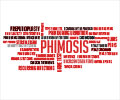Increased risk of developing dementia is potentially linked to the consumption of processed meat such as bacon, sausages, and burger.

- Increased risk of developing dementia is potentially linked to the consumption of processed meat
- Contrarily, the consumption of unprocessed red meat, such as beef, pork, or veal, revealed lower chances to develop dementia, thereby exerting a protective role
- This invites a further understanding of the effect of eating a healthy and lower amount of unprocessed red meat and its benefits on mental health
Earlier evidence supports the association of increased risk of dementia with meat consumption. But the present study is the first large-scale study of participants over time to examine a link between specific meat types and amount and the risk of developing the disease.
"Worldwide, the prevalence of dementia is increasing and diet as a modifiable factor could play a role. Our research adds to the growing body of evidence linking processed meat consumption, to increased risk of a range of non-transmissible diseases", says Lead researcher Huifeng Zhang, a Ph.D. student from the University of Leeds' School of Food Science and Nutrition.
TOP INSIGHT
Consumption of processed meat is shown to increase the risk of developing dementia. But lower intake of unprocessed red meat such as beef, veal reveals reduced chances to develop dementia, thereby exerting a protective role.
Read More..
Dementia Risk with Meat Consumption
The study team enrolled 493888 participants from the UK Biobank, a database containing in-depth genetic and health information from half a million UK participants aged 40 to 69, for analyzing the link between consumption of different types of meat and the risk of developing dementia.Questions on the frequency of different kinds of meat consumption, with six options from never to once or more daily, were collected in 2006-2010 by the UK Biobank. Moreover, the data from people who did not eat red meat and instead consumed a vegetarian or vegan diet were not analyzed for the risk of dementia risk.
Over the average period of eight years follow-up, 2,896 cases of dementia (men more than women) emerged among the participants enrolled. The cases generally were older, more economically deprived, less educated, or had a history of stroke, smoking, sedentary lifestyle, or family history of dementia.
The team discovered that consuming a 25g serving of processed meat a day, (the equivalent to one rasher of bacon), is associated with a 44% increased risk of developing dementia. The risk of developing the disease from eating processed meat remained the same whether or not a person was predisposed to genetic risk factors.
Unprocessed Meat May Exert Protective Role
On the other side, it was also observed that people who consumed 50g of unprocessed red meat, such as beef, pork, or veal, per day were 19% less likely to develop dementia, thereby exerting a protective role."Further confirmation is needed, but the direction of effect is linked to current healthy eating guidelines suggesting lower intakes of unprocessed red meat could be beneficial for health", says Ms Zhang. Thus understanding and exploring the potential risk factors for dementia may reduce the prevalence rate of this debilitating condition.
Improve Brain Health with MIND Diet
The MIND diet (a hybrid of the Mediterranean and DASH diets) created to prevent dementia and slow the loss of brain function that can happen with age. Foods emphasized on the MIND diet include whole grains, berries, green leafy vegetables, fish, poultry, beans, nuts, and olive oil. These foods contain nutrients that promote good brain health by lowering oxidative stress, inflammation, and the formation of beta-amyloid plaques.Quick Facts on Dementia
- Approximately 50 million dementia cases exist globally.
- Every year around 10 million new cases of dementia are diagnosed.
- Alzheimer's disease makes up 50% to 70% of dementia cases, and 25% is contributed by vascular dementia.
- Its development and progression are associated with both genetic and environmental factors, including diet and lifestyle.
- Sustaining a healthy lifestyle with routine exercise and mental activity helps prevent brain degeneration.
- Palliative care treatment in dementia mandates a multidisciplinary approach for improving the quality of life in patients.
Palliative Care Treatment in Dementia
- Provide the patients with simple yet key messages regarding their illness and treatment strategies. This would help ease their anxiety level.
- Encourage activities of daily living (ADL) to patients and their participation in social activities.
- Timely monitoring of orientation information like day, date, time, place, and names of people would aid in spotting out early deterioration during the disease.
- Early interventions render better management of dementia.
Reference:
- What is the MIND diet?(https://foodinsight.org/what-is-the-mind-diet/)
Source-Medindia
 MEDINDIA
MEDINDIA




 Email
Email










